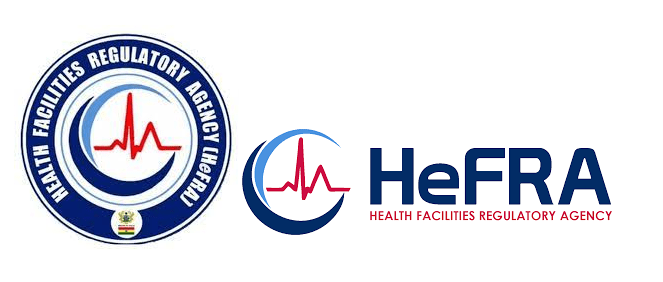The Health Facilities Regulatory Agency (HeFRA) has accorded formal recognition to the SafeCare quality improvement standards and methodologies for assessing health facilities in Ghana. The recognition was announced in a letter signed by the Registrar of HeFRA, Dr. Philip A. Bannor, dated 20th June, 2022.
The letter stated: “HeFRA’s recognition of SafeCare stems from an understanding of the SafeCare Standards and Methodology for quality measurement and improvement, and an acknowledgment of the adoption of the programme among its participating healthcare facilities in the country. The SafeCare programme has demonstrated continuous commitment to helping healthcare facilities and networks to bridge quality gaps by supporting them to measure, monitor, and improve their services using innovative solutions”.
In a media interview, Dr. Bannor mentioned that the strategic partnership with SafeCare offers another quality improvement tool in ensuring that healthcare facilities provide safe and better outcomes for individuals seeking care. He said the recognition is part of HeFRA’s efforts to ensure that healthcare facilities in Ghana provide quality service to all.
He said: “SafeCare certification and accreditation is a stamp of approval that a health facility has met certain internationally recognised quality and safety standards for patient care”.
“We, at HeFRA, welcome that extra layer of care standard or scrutiny that SafeCare brings into the picture to ensure that errors do not happen in health delivery and clinical care,” he added.
Healthcare providers in developing nations, like Ghana, often struggle with patient safety and quality demands, and have limited data and insights on overall quality. The SafeCare quality improvement standards support their progress by helping them measure, rate, benchmark, and improve their services using innovative solutions.
Dr. Bannor further indicated that the SafeCare Standards and Methodology will augment the National Standards in ensuring best practices to promote quality care for patients. He added that HeFRA will continue to enforce the National Standards as mandated by law, and where there are gaps, policies will be formulated to address them.
The registrar further indicated that HeFRA will continue to institute measures to prevent errors, and promote a culture of safety and learning. He explained that the enforcement of these standards for quality care would go a long way to help avoid mistakes in health delivery.
For example, he said: “If you look at some of their best practices, it will prevent the patients from getting medications that were not written for them, or medication that the patients may be allergic to. How do we ensure that patients do not get the wrong blood transfusion? How do we ensure that you limit infections by following infection prevention and control measures? ”
Dr. Bannor stated that he is particularly impressed with the level of commitment of SafeCare to improving healthcare in an emerging economy. “For SafeCare to identify Ghana as one of all the many places they could go and spend their precious resources, talents, and ideas is the most welcoming information”, he said.
Dr. Bannor disclosed that in 2023, HeFRA will institute a system for ranking health facilities in the country based on standards; with that, HeFRA will be able to identify and publish the best-performing facilities, e.g., the best facility in maternity care or pediatric care, etc. in a region. He revealed that in a bid to encourage healthcare facilities to prioritise service delivery, HeFRA is currently liaising with the National Health Insurance Scheme to provide incentives to institutions that consistently offer top-rated care to their patients.
The SafeCare quality certification and accreditation programme is critical to help facilities continuously improve and deliver safe and quality care, which would put them in top rating.
The SafeCare international Standards evaluate healthcare facilities’ systems and processes to measure and rate the levels of risks and fluctuations in service delivery and outcomes. The rating is assigned ranks from SafeCare Level 1 to Level 5, Level 1 being the lowest (indicative of severe risks and highest fluctuations in the quality of services delivered) and Level 5 being the highest (indicative of a facility that has established continuous monitoring and implementation of standards and guidelines, with a significant reduction in risks and higher consistency in standardised service delivery). Beyond the international rating and certification, SafeCare also helps healthcare facilities through its digitally facilitated methodology to improve their quality and patient safety.










